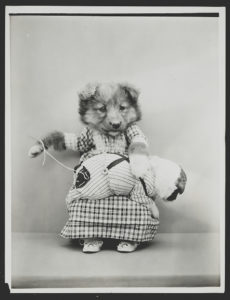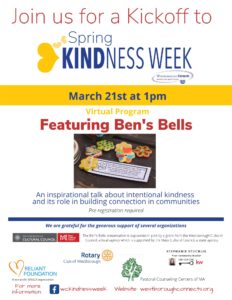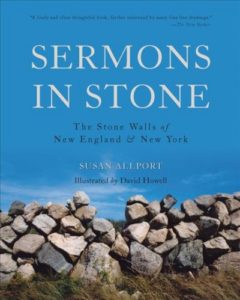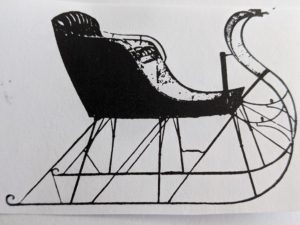
To Be Human
In a past newsletter, I posed three questions that I believe we should ask ourselves throughout the course of our lives. In this issue, I am going to address the second of the three questions: How can we fully experience what it means to be human?
Human beings are amazing creatures. We are clever and resourceful. We are so social that we are cultural. We alone are able to debate the extent to which we are different from other animals. And within a short period of time we have learned how to control and manipulate our environment to such a degree that we now have the ability to wipe out our very existence from the face of the planet, and in a variety of ways, no less.
Human beings are incredibly special, so it makes sense that we want to engage in activities at which we happen to excel. To do so, as I briefly argued in my last newsletter, is a crucial component to living a Good Life. Here is a list of activities that, for the most part, are special to humans, and by engaging in them, I would argue, allow us to feel and enjoy our humanness.
- Engage in literacy. Of course a librarian would start with this one! Human beings learned to write 5,500 years ago and communicated through speech well before then. The ability to read and write is a major driver of civilization, because it allows us to store and pass along complex thoughts and ideas more easily through time and space. So write a short story, compose your memoirs, or at least pick up a book, or a magazine, or a newspaper, or a website, and read!
Suggested Reading: Writing Tools: 50 Essential Strategies for Every Writer by Roy Peter Clark. Every good writer always looks for ways to improve. Clark offers practical advice that every writer can use in a non-threatening tone.
- Exercise. When I learned years ago that our bodies were specially designed to run long distances, so that we could hunt down our prey by chasing it until it became exhausted, I decided to get back into running. After all, I figured, we should do what we’re designed to do. Now that I am creeping up in age, I no longer run, but I still go to the gym, which also has a long history that traces back at least to the Greeks (in fact, the word “gymnasium” itself derives from Greek).
Suggested Reading: The First 20 Minutes: Surprising Science Reveals How We Can Exercise Better, Train Smarter, Live Better by Gretchen Reynolds. I always enjoy reading Reynolds’s fitness column in the New York Times. Here, she discusses best practices for a variety of fitness goals.
- Get a dog. – The relationship between dogs and humans is special—few species interact and rely on each other to the degree that we do. In fact, our relationship is so special that I would argue that getting a dog is important to experiencing what it means to be human. I hear you, cat people! But cats aren’t nearly as interested in us as we are in them. But if cats work for you, then go for it (or goats, or pigs, or hamsters, or fish . . .)! After all, animals have a lot to teach us about what it means to be human.
Suggested Reading: The Well-Adjusted Dog: Dr. Dodman’s Seven Steps to Lifelong Health and Happiness for Your Best Friend by Nicholas H. Dodman. Dodman is a local dog expert and is Professor Emeritus at the Tufts veterinary school. In his book, he covers the art, and science, of dog ownership.
- Explore spirituality and religions besides your own. Human beings are storytellers, and religions are full of stories that are heavily embedded with meaning and that ultimately are meant to teach us what it means to be human. I, for one, enjoy reading mythology (after all, they once formed the basis of a past civilization’s religion) but all religions can give us clues into helping us figure out what is important in our human world (and, perhaps, in the world above and beyond). And if religion isn’t your thing, try philosophy!
Suggested Reading: Living with the Gods: On Beliefs and Peoples by Neil MacGregor. The former director of the British Museum surveys the variety of ways that people across the globe have imagined their place in the cosmic universe and what happens when they conflict with one another.
- Start a garden. For better and for worse, human beings began to engage in agriculture around 10,000 years ago. While agriculture theoretically helped us better control our food supply, it also tied us to the land, lengthened the amount of time and effort we had to put in to securing our food, and created some severe consequences for our global environment. But now it’s a crucial part of who we are, so why not try growing some of your own food? Don’t have a green thumb? At least patronize one of our local farms or farmer’s markets.
Suggested Reading: Kitchen Gardening for Beginners: A Simple Guide to Growing Fruit and Vegetables by Simon Akeryod. There are any number of books about growing your own food, and some even show you how to do so without a yard. This book covers the basics without overwhelming the beginning gardener.
- Create art and/or engage in a craft. Humans are creative in many ways, especially when it comes to working with our hands. Our ability to create something that has the power to move us or simply tickle our fancy out of essentially nothing is joyful and awe-inspiring. Don’t worry if your first attempt looks like Homer Simpson’s spice rack. Your next attempt will be much better.
Suggested Reading: A Craftsman’s Legacy: Why Working with Our Hands Gives Us Meaning by Eric Gorges. I love watching this series on PBS. This book goes into more detail about Eric Gorges’s philosophy and the importance of craft.
Yikes! I’ve run out of room, and I’m only half-way through my list! I guess human beings are much too complex and interesting to cover in one newsletter.
Next: Continue on to the next issue where I continue my list.
In the meantime, do you want to take a guess about what will appear on my list next time? Share your guesses in the comment section.
–Anthony Vaver, Local History Librarian
* * *
Another great way to experience our humanness is to be kind to one another!
Join Westborough Connects for Spring Kindness Week (3/21-3/27). They will be kicking off the week on Sunday, March 21st at 1 p.m. with a virtual presentation by the Ben’s Bells. This inspirational program will focus on the importance of (and science behind) intentional kindness, and the role kindness plays in connecting communities. It is intended for all ages.
HERE is a link to register for the program. For those registered, Take-and-Spread Kindness Toolkits will be available to “grab and go” after the presentation to help spread kindness the rest of the week. Each day, celebrate with a different themed activity with Partners in Kindness (several businesses and organizations in town) who will be spreading and recognizing kindness in a variety of ways.
You can keep up to date on Spring Kindness Week events on the Westborough Connects website, their Facebook page, or by signing up to be on the Westborough Connects mailing list.
* * *
Now that the snow has melted for good (let’s hope!), a walk in the woods reveals like no other time of the year those mysterious stone walls that run throughout our New England countryside. Who put them there, and why? You can find answers to these questions and more in these books, which are available in the Westborough Center Circulating Collection outside the entrance to the Westborough Center inside the library.
- Exploring Stone Walls: A Field Guide to Stone Walls by Robert M. Thorson.
- Stone by Stone: The Magnificent History in New England’s Stone Walls by Robert M. Thorson.
- Sermons in Stone: The Stone Walls of New England and New York by Susan Allport.
* * *
Why is there a sleigh weathervane on Town Hall? Zoom into the Westborough Historical Society’s free program, “William Sibley (1821-1890): Citizen, Soldier, Sleighmaker,” on Monday, March 29, at 7:00 p.m. to find the answer.
Jim O’Connor chronicles the life of William Sibley, a Westborough sleighmaker, at a time of national crisis and dissension. A respected citizen, Sibley joined Westborough’s Company K when he accepted President Lincoln’s call for volunteers after the attack on Ft. Sumter and the succession of the Southern states. Upon his return from war, he became one of the leading sleigh manufacturers in Westborough in the 1850s. William Sibley built the 1844 Greek Revival home at 13 Parkman St., including his sleigh shop. The Sibley House is now the headquarters of the Westborough Historical Society.
Attendance is limited to 100 and requires registering in advance for this meeting:
https://us02web.zoom.us/meeting/register/tZ0vcu6ppjgpH91gH7b73btEdvQIaAYzvR5b
After registering, you will receive a confirmation email containing a unique link to join the meeting.
* * *
Did you enjoy reading this Westborough Local History Pastimes newsletter? Then subscribe by e-mail and have the newsletter and other notices from the Westborough Center for History and Culture at the Westborough Public Library delivered directly to your e-mail inbox: https://www.westboroughcenter.org/subscribe-to-updates/. The newsletter is published every first and third Friday of the month.



Dear Anthony: Thank you so much for summarizing what it takes to be human. I can’t wait for the next installment. I hope you will mention travel, especially, to explore our roots; prior home (e.g., Westboro), more prior home (e.g., Europe), and, of course, Africa and the ocean, for whence we all originally came. With your permission, I plan to offer a copy of your remarks to people who ask me if I’ve learned anything from being alive for more than seven decades. Stay well. Gerry (formerly of 105 West Main Street).
Hi Gerry, I’m flattered that you think so highly of my list as to pass it along to others. Please do! I love your suggestion, but you’ll have to wait until April 2 to see if it appears on the rest of my list.